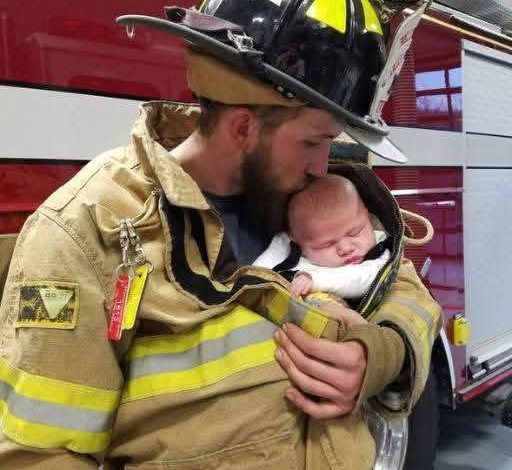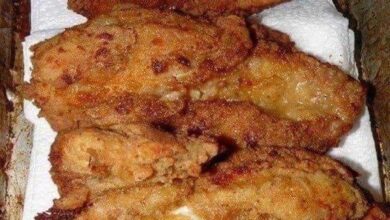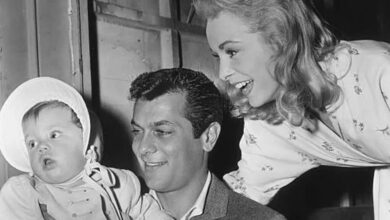
My House Burned Down With Everything We Owned—a Firefighter’s Gift Changed Everything
The night air was bitterly cold, sharp against my skin as I stood barefoot on the sidewalk, cradling my daughter Luna tightly against my chest. My breath came out in ragged clouds, visible against the dark sky, but I barely noticed the chill. The only warmth I could feel was the heat that still radiated from the smoldering wreckage behind me—my home, engulfed in flames. Smoke clung to my clothes, my hair, my skin, the acrid smell already seared into memory. My baby boy, Mateo, only a few months old, was wrapped in a thick firefighter’s jacket, held safely in the arms of a man I didn’t yet know. His name was A. Calderon.
Everything had happened so quickly. The sirens. The screaming. The panicked scramble to get out. One minute I was putting Luna to bed, humming a lullaby into the soft curls on her forehead. The next, we were outside with nothing but the clothes on our backs, watching our world disappear in a cloud of fire and smoke.
Neighbors stood nearby, whispering and watching. Some offered blankets, a few kind words, and their condolences. Others simply stared, unsure of what to say. I didn’t blame them. I didn’t know what to say either.
Luna, only five, looked up at me with eyes wide from fear and confusion. Her voice was barely a whisper. “Mommy… where will we sleep now?”
I opened my mouth to answer her, but no words came. My heart cracked in that moment—not just from the fire, or from the sight of my life in ruins—but from the helplessness I felt in front of my child. My husband had been gone for months—gone in the way some men go when the pressure becomes too much, and promises made are too easy to break. I had been holding on, barely. And now, there was nothing left to hold on to.
That’s when Calderon stepped forward. His presence was calm, strong, and strangely reassuring. He held Mateo gently, his thick firefighter’s coat wrapped securely around the baby. His eyes were kind, and they met mine without hesitation.
He reached into his pocket and pulled out a small silver key, placing it in my trembling hand. “It’s not much,” he said, “but it’s a warm place. It’s yours for as long as you need.”
He offered a quiet smile. “It’s an apartment I keep for situations like this. People helped me once. This is just my way of giving back.”
I didn’t know what to say. I didn’t know whether to trust him. But in that moment, all I had was this stranger’s kindness. I nodded, clutched the key, and followed him to his truck.
The apartment was small—just two rooms—but it was clean and warm. There was food in the fridge, enough for a few days. An envelope on the counter held some cash. I started to protest, but Calderon stopped me. “No strings,” he said gently. “Just take it. You’re not alone.”
In the days that followed, I tried to rebuild. It wasn’t easy. Luna was quiet, traumatized. Mateo cried more often. I struggled to sleep. But every time it felt too heavy, Calderon would stop by—not to intrude, just to check in. He brought diapers, baby formula, groceries. One day, he handed Luna a firefighter plush toy with a big, friendly smile stitched onto its face. “His name’s Smokey,” he told her. “He protects brave kids like you.”
Luna clutched Smokey close. “Why do you help us?” she asked, her voice still uncertain, still healing.
Calderon knelt beside her, his voice soft. “Because someone helped me when I needed it. Now it’s my turn.”
Later, when I was organizing a few belongings, I found an old photo tucked in the side of one of the boxes he’d brought. It was Calderon as a boy, standing next to an older man in uniform—his father, also a firefighter. I realized then that this wasn’t just charity. It was legacy. This kindness, this generosity, was part of who he was, passed down like a family recipe, baked into the bones of the man who had come to our rescue.
Weeks passed. With Calderon’s encouragement, I found a job at a local diner. It wasn’t glamorous, but it was a start. I started saving again. Luna laughed more often. Mateo grew stronger, his giggles starting to return. Life—slowly, carefully—began to feel livable again.
The day we moved into our own apartment, a tiny second-floor unit with chipped paint and creaky stairs, Calderon showed up with a toolbox and a bag of groceries. He spent hours fixing a leaky sink, tightening door hinges, and helping set up the kids’ beds. When everything was finally in place, we sat on the floor of our new living room, surrounded by boxes and pizza.
“I don’t know how to thank you,” I said, my voice catching.
He shrugged, wiping grease from his hands. “You already did,” he said. “You got back up.”
I smiled through tears. “You gave us a future.”
He looked at me, then at the kids playing on the carpet. “That’s what people are supposed to do.”
In the months that followed, Calderon remained in our lives—not as a savior, not as a charity case—but as a friend. He was there for Luna’s school plays, Mateo’s first steps, Sunday morning pancakes, and even quiet nights on the porch. Slowly, he became more than a firefighter who saved us. He became family.
That cold night, standing barefoot in the ashes of my old life, I believed I had lost everything. But sometimes, the end of something familiar is the beginning of something better. Sometimes, when the world takes away what we thought we needed, it gives us something we never imagined we could have—hope, resilience, and the kind of love that expects nothing in return.
Calderon didn’t just give us a place to stay. He gave us the chance to believe in humanity again. And in doing so, he reminded us all that kindness isn’t just a fleeting act—it’s a way of life. One person, one gesture, one open door can change everything.
If this story moved you, consider sharing it. The world can always use more stories of kindness, courage, and the quiet ways people save each other every single day. ❤️





